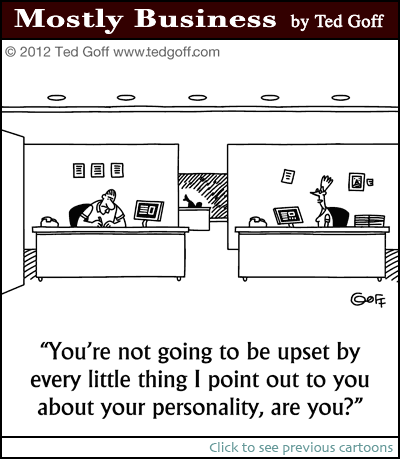Managing many
Is the same as
Managing few;
It is a question of
Division.
Figthing with many
Is the same as
Fighting with few;
It is a matter of
Marshalling men
With gongs,
Identifying them
With flags.
The Skilful Warrior attacks
So that the enemy
Cannot defend;
He defends
So that the enemy
Cannot attack.
Weakness
Stems from
Preparing against attack.
Strength
Stems from
Obliging the enemy
To prepare against an attack.
He who advances
Without seeking
Fame,
Who retreats
Without escaping
Blame,
He whose one aim is
To protect his people
And serve his lord,
This man is
A Jewel of the Realm.
Never move
Except for gain;
Never deploy
Except for victory;
Never fight
Except in a crisis.
(Sun Tzu - The Art of War - Strike with Chaos)
Sunday, April 30, 2006
Thursday, April 27, 2006
View on Wall Street Journal Operations
 A major project for the Wall Street Journal Europe. Tonight we will insert a brand new magazine "Style Journal" (featuring Ralph Fiennes on the cover) in the Wall Street Journal Europe circulation. For months the Distribution Operations team is preparing the insert of this glossy 190 grams magazine in a 56 page newspaper in 9 printplants destined to go to 75 countries. All teammembers are spread over Europe to follow up in the respective mailrooms. Surprisingly we noticed that laborers, the people that actually do the work in the printplants at night (packing, polywrapping, cutting, folding, glueing, inserting, counting,...) took the initiative in 3 printplants to organize testruns without being ordered to do so by their uppermanagement or by us, the client. In Brussels for example they tested three nights in a row to adjust their machines after the normal production of their newspapers. Something quite out of the ordinary in a very unionized environment especially because there was no order from "upperhand" to do so. It is an interesting exercise to try to find out what drives laborers to take initiative, to excel, to step outside their normal routine. It is as if there is a virtual nightly competition between the laborers of our printplants in Europe (impossible in reality because we work with independent printplants, there is surely no contact whatsoever between the employees of the resp plants).
A major project for the Wall Street Journal Europe. Tonight we will insert a brand new magazine "Style Journal" (featuring Ralph Fiennes on the cover) in the Wall Street Journal Europe circulation. For months the Distribution Operations team is preparing the insert of this glossy 190 grams magazine in a 56 page newspaper in 9 printplants destined to go to 75 countries. All teammembers are spread over Europe to follow up in the respective mailrooms. Surprisingly we noticed that laborers, the people that actually do the work in the printplants at night (packing, polywrapping, cutting, folding, glueing, inserting, counting,...) took the initiative in 3 printplants to organize testruns without being ordered to do so by their uppermanagement or by us, the client. In Brussels for example they tested three nights in a row to adjust their machines after the normal production of their newspapers. Something quite out of the ordinary in a very unionized environment especially because there was no order from "upperhand" to do so. It is an interesting exercise to try to find out what drives laborers to take initiative, to excel, to step outside their normal routine. It is as if there is a virtual nightly competition between the laborers of our printplants in Europe (impossible in reality because we work with independent printplants, there is surely no contact whatsoever between the employees of the resp plants).
Wednesday, April 26, 2006
Are managers becoming disposable leaders ?
It's a thought, it is a feeling, but organizations-an-sich, especially clusters of collaborators seem to become more time-dependent, limited in time, often just temporary mini structures that cease to exist after a specific task has been done. This also has an impact on the role and life cycle of managers within a company. Managers are experiencing nowadays what football (soccer) trainers already experience for years. They all have a short lifespan in a company or club. They are replaceable assets. They come and go together with new 'momentums'. No reason for leaders and managers to create or even follow a longterm vision, .... ?
Feel free to comment.
Feel free to comment.
Tuesday, April 25, 2006
"Yes, management and leaderschip are both critically important"
Yes, management and leaderschip are both critically important in the ongoing success of an organization, but no, they are not interchangeable. On the contrary, the role of the leader and the role of the manager are utterly different. The responsibilities are different. The starting points are different. The talents required to excel at each are different (...) This doesn't mean that you cannot excel at both. You can. But it does mean that, if you want to choose between one or the other as your primary focus, you need to be aware of the difference (Buckingham, 2005)
Friday, April 21, 2006
Management Quotes
For those interested in Management Quotes, go to: http://www.managementquotes.blogspot.com
Do not hesitate to send me quotes that make life of managers more understandable.
Do not hesitate to send me quotes that make life of managers more understandable.
Thursday, April 20, 2006
Management Mugs
Wednesday, April 19, 2006
"Talent hits a target no one else can hit. Genius hits a target no one else can see."
Arthur Schopenhauer, German philosopher
Tuesday, April 18, 2006
Management Theories ??
What people thought about 'management' was subject to great changes and paradigm shifts over the past century. Basically there are three 'periods' that produced typical management theories.
1. Period of the Scientific Management Theory (1890-1940)
Around 1900 organizations became 'industrialized'. The manufacturing process was based on ongoing routine tasks. Management in the factories started to measure and specify their activities and results. In this atmosphere a Frederick Taylor developed his "scientific management theory". His 5 principles of management were:
- Develop a science for each element of an individual's work.
- Scientifically select, train and develop the worker.
- Heartily cooperate with the workers.
- Divide work & responsibility equally between managers & workers.
- Improve production efficiency through work studies, tools, economic incentives.
2. Period of the Bureaucratic Management Theory (1930-1950)
Most well known advocate of this theory was a Max Weber. Weber made a breakdown of organizations in hierarchies, focusing on strong lines of authority and control. He advised the industry to start standardizing the operational procedures for at least all routinezed tasks.
3. Period of the Human Relations Focused Theory (1930-today)
Former theories lacked the 'human' element. One could say that the worker was compared with and measured against machines in the past. The paradigm shifted from dehumanazing industrial linework to individuals who seemed to be able to make a difference in the results of the company. The first Human Resources departments were introduced to tap into this unknown pool of capacities and opportunities. Revolutionary was the idea that the organization would prosper if the workers were actually 'happy' and prospered as well.
(Various new theories came to existence later on, most of them based on the behavioral sciences.)
1. Period of the Scientific Management Theory (1890-1940)
Around 1900 organizations became 'industrialized'. The manufacturing process was based on ongoing routine tasks. Management in the factories started to measure and specify their activities and results. In this atmosphere a Frederick Taylor developed his "scientific management theory". His 5 principles of management were:
- Develop a science for each element of an individual's work.
- Scientifically select, train and develop the worker.
- Heartily cooperate with the workers.
- Divide work & responsibility equally between managers & workers.
- Improve production efficiency through work studies, tools, economic incentives.
Frederick W. Taylor, The Principles of Scientific Management (New York: Harper Bros., 1911)
2. Period of the Bureaucratic Management Theory (1930-1950)
Most well known advocate of this theory was a Max Weber. Weber made a breakdown of organizations in hierarchies, focusing on strong lines of authority and control. He advised the industry to start standardizing the operational procedures for at least all routinezed tasks.
3. Period of the Human Relations Focused Theory (1930-today)
Former theories lacked the 'human' element. One could say that the worker was compared with and measured against machines in the past. The paradigm shifted from dehumanazing industrial linework to individuals who seemed to be able to make a difference in the results of the company. The first Human Resources departments were introduced to tap into this unknown pool of capacities and opportunities. Revolutionary was the idea that the organization would prosper if the workers were actually 'happy' and prospered as well.
(Various new theories came to existence later on, most of them based on the behavioral sciences.)
Friday, April 14, 2006
If your upcoming business careers were a movie plot, it would resemble the movie "Speed."
“Speed Saves: Living on the Edge is America’s Edge”
6 thoughts from a speech of Mitchell E. Daniels (a US Governor) in a Lecture for the Rose-Hulman Institute of Technology. Read the complete and sometimes hilarious (certainly from a European viewpoint) speech at: www.managementspeeches.blogspot.com.
1. While the European Union busies itself writing layer upon layer of rules, Americans are starting 600,000 new businesses every year.
2. It seems an American can conceive, finance, launch a business, and fail or succeed in less time than it takes a European to get a license to operate.
3. Americans fix problems as they arise; Europeans often seem bent on preventing any chance of trouble arising in the first place.
4. At Mothers Work, a maker of maternity apparel, the motto is "Give the lady what she wants when she wants it."
5. Thomas Edison ran 2000 unsuccessful experiments before his filament produced sustained illumination. When a reporter asked him how he dealt with all that failure, Edison said "I never failed. I invented the light bulb in a 2000-step process."
6. America loves winners, but we love losers even more, when they get back on the track and into the race.
6 thoughts from a speech of Mitchell E. Daniels (a US Governor) in a Lecture for the Rose-Hulman Institute of Technology. Read the complete and sometimes hilarious (certainly from a European viewpoint) speech at: www.managementspeeches.blogspot.com.
1. While the European Union busies itself writing layer upon layer of rules, Americans are starting 600,000 new businesses every year.
2. It seems an American can conceive, finance, launch a business, and fail or succeed in less time than it takes a European to get a license to operate.
3. Americans fix problems as they arise; Europeans often seem bent on preventing any chance of trouble arising in the first place.
4. At Mothers Work, a maker of maternity apparel, the motto is "Give the lady what she wants when she wants it."
5. Thomas Edison ran 2000 unsuccessful experiments before his filament produced sustained illumination. When a reporter asked him how he dealt with all that failure, Edison said "I never failed. I invented the light bulb in a 2000-step process."
6. America loves winners, but we love losers even more, when they get back on the track and into the race.
Wednesday, April 12, 2006
Management Speeches
For the ones interested in good management speeches I created www.managementspeeches.blogspot.com
First speech is an interesting speech from Kurt Kuehn Senior Vice President, Worldwide Sales and Marketing, UPS. He started as a delivery driver for UPS in 1977 and worked his way up.
He highlights five areas that are critical to business plan objectives, and he shows how synchronized commerce can help drive real results, by attacking the “soft three dollars.”
The five strategic imperatives are not limited to the retail industry. These are universal challenges:
- improving financial metrics;
- driving growth through new geographies, new channels, and new business conditions;
- differentiating yourselves in a world of increased parity;
- enhancing customer service;
- increasing productivity

More on www.managementspeeches.blogspot.com
First speech is an interesting speech from Kurt Kuehn Senior Vice President, Worldwide Sales and Marketing, UPS. He started as a delivery driver for UPS in 1977 and worked his way up.
He highlights five areas that are critical to business plan objectives, and he shows how synchronized commerce can help drive real results, by attacking the “soft three dollars.”
The five strategic imperatives are not limited to the retail industry. These are universal challenges:
- improving financial metrics;
- driving growth through new geographies, new channels, and new business conditions;
- differentiating yourselves in a world of increased parity;
- enhancing customer service;
- increasing productivity

More on www.managementspeeches.blogspot.com
Kurt Kuehn Senior Vice President, Worldwide Sales and Marketing, UPS
Tuesday, April 11, 2006
Management lessons from a diaper room.
 "So ein Mensch gluchlich ist, hat ein anderer dafur gesorgt."
"So ein Mensch gluchlich ist, hat ein anderer dafur gesorgt."
Happiness is to be found in small places. In Germany for example, in a baby diaper room, a tiny space in the restrooms of a JET gasoline station along the highway from Koln to Belgium. A toilet lady turned 'her' diaper room in a cozy, baby friendly environment with some curtains, dolls, pictures on the wall, flowers, oils, and all sorts of tissues with nice scents. Centrally she hung a German proverb saying: "When someone is happy, somebody else made him that way." A management lesson never to forget. On top of that, the toilet lady turned out to be a master marketeer subtly selling herself. Although you were not obliged to pay some money leaving the restroom, I never saw bigger tips coming her way from the mothers using this diaper room.
Monday, April 10, 2006
Wednesday, April 05, 2006
Tuesday, April 04, 2006
Managers still create the wrong companies.
 In 1970 3 Dutch people wrote a revolutionary little book "The Little Red Book for Students" *. It was published by A.W. Bruna & Son. The cover was created by Dick Bruna the famous inventor of 'Miffy' ('Nijntje' in Dutch).
In 1970 3 Dutch people wrote a revolutionary little book "The Little Red Book for Students" *. It was published by A.W. Bruna & Son. The cover was created by Dick Bruna the famous inventor of 'Miffy' ('Nijntje' in Dutch).The book was handed out to thousands of students in Europe. It basically criticizes the then existing 'schoolsystem', 'society' and 'ethics'.
In 1970 this was what they wrote on 'Authority on the job':
" ... If you pass your examinations at school successfully, you will go to work. You will end up at a work floor or behind a desk. You will do what is expected from you, because you are expected to do so. That is what you are paid for. Others will determine the value of your work. You will receive orders from 'above'. If you perform well you will receive subordinates. You are important as long as you are profitable. If you raise your voice or question the company you will be removed or you will be fired. The strategy is in hands of uppermanagement. If the strategy fails the company will be closed. That is the reality today.
......... BUT it can be different. A truly democratic company is owned by the people who really do the job. They decide what has to be done. They will assign or remove the director or the uppermanagement. They will decide where the profit goes to. They are able to decide on every company aspect because all relevant info comes to them or through them. There is no difference between people who 'think' or people who 'do'. Every employee is responsible for every product the company produces. The company does not exist to help the shareholders or the powerful elite behind the company, to make more money. The company exists only to do and to produce what the employees need. What they need is what they decide upon amongst themselves. ..."
We are now 35 years later. Did the students that received this Little Red Book in their teens change the world ? I doubt it.
Besides that I must admit that the Little Red Book is from a genuine optimism and it breaths REVOLUTION. More then 125.000 books were produced from September to December 1970. I found it by accident by cleaning house for my mother in law, a former progressive teacher. If you want a copy of this jewel from the past send me an e-mail.
*A lot of the content was based on a 1969 Danish book "Den lille rode bog for skoleeleever" from 3 Danish writers (published by Hans Reizels Forlag, Copenhagen)
Subscribe to:
Posts (Atom)






















